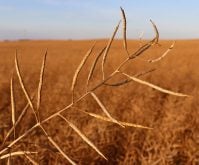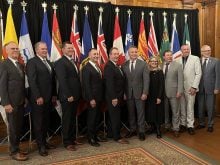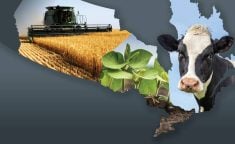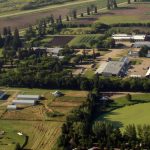The Keystone Agricultural Producers (KAP) want federal Agriculture Minister Marie-Claude Bibeau to reconsider exempting grain drying and barn heating from the carbon tax.
Manitoba’s general farm organization made the pitch, backed by additional data, in a July 31 letter.

“Carbon tax costs for farmers are significant,” KAP president Bill Campbell said in the letter.
“A corn grower in Manitoba, growing 250 acres of corn spent $33,664 on propane to dry their crop in 2019,” he wrote. “The carbon tax added another $1,043 to their fuel bill, or three per cent.”
A Manitoba chicken farmer heating a barn from Oct. 24, 2019 to Jan. 21, 2020 spent $5,935.10 on natural gas, Campbell wrote.
“The carbon tax added another $1,315.17 to their fuel bill or 22.16 per cent,” according to the letter.
“Our data projects that the same farmer drying the same 250 acres of corn will pay almost $3,400 in carbon tax alone in 2022, the year in which the federal government has proposed a freeze on increases to the carbon tax,” KAP argued. “The same chicken farmer heating the same barn will pay over $5,000 in carbon tax in 2022.”
Why it matters: KAP says the carbon tax on grain drying and barn heating is more significant than the federal government acknowledges and they have data to prove it. KAP is asking Ottawa to reconsider an exemption — a request its willing to consider.
Even though farm fuel used in equipment such as tractors and trucks is carbon tax exempt, the Manitoba government estimates the tax still cost Manitoba farmers $5 million in 2019.
In June, Bibeau said that based on data collected from groups, including KAP, and assessed by Agriculture and Agri-Food Canada, the tax added from $210 to $819 per farm for grain drying, just 0.05 per cent to 0.42 per cent of total farm operating expenses.

“So if we were to move forward with these data (and provide an exemption) many other businesses would also fall into the same level of impacts,” Bibeau told reporters during a video conference. “This pollution pricing policy is an important part for a greener economy and for more sustainable development.”
Bibeau welcomes continued dialogue on the controversial issue, her director of communications, Oliver Anderson, said in an interview July 31.
“Since the beginning, the minister has demonstrated that she is very interested in what stakeholders have to say about it,” Anderson said. “That’s why she asked for the data in the first place.”
In the meantime, the government, through Environment and Climate Change Canada, has launched an early review of the carbon pricing program framework, he said.
Read Also
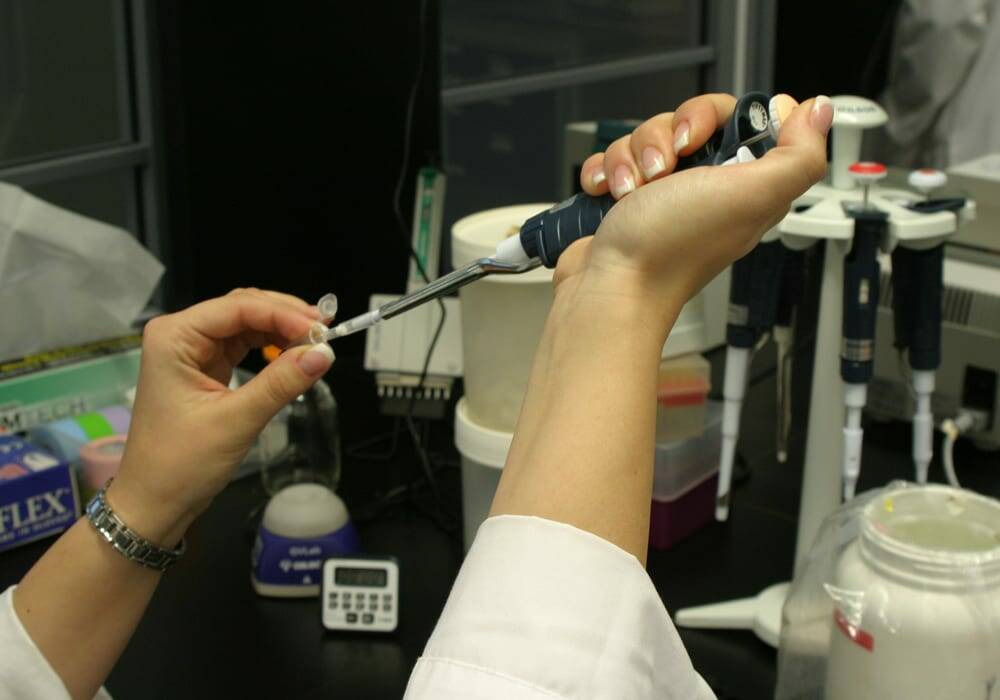
Ship’s turning for gene-edited crops
More and more countries have decided that gene-edited crops will be treated the same as conventional plant breeding.
“We are looking at competitiveness issues…,” Anderson added.
KAP’s letter argues the carbon tax makes Canadian farmers less competitive because they can’t pass the price on, and because competitors, including American farmers, don’t pay a carbon tax.
“The Government of Canada is also looking at a greenhouse gas offset system to provide compliance options to create potentially carbon sequestration credits in different jurisdictions,” Oliver said.
He also noted the federal government is paying 60 per cent of the cost of a program with Alberta to help fund farmers who want to make dryers more efficient. Other provinces can do the same under the Canadian Agricultural Partnership, he said.
Campbell’s letter lists five reasons farmers should be exempt from the carbon tax:
1. Alternative fuels are not currently available to replace propane and natural gas on farm and so farmers cannot choose cleaner options.
3. Farmers cannot pass along increased costs to consumers.
4. American farmers are not subject to a carbon tax and Canadian farmers are put at a competitive disadvantage.
5. Farmers provide ecological goods and services but are not recognized for them.
Based on invoices collected from farmers, KAP says it calculated corn growers in Manitoba paid approximately $1,650,682 in carbon tax to dry the 2019 corn crop ($3.59 x 459,800 acres).
Manitoba chicken farmers paid on average $2,043 in carbon tax to heat their barns from November to January. For propane that represented a 6.6 per cent increase in propane fuel costs and 21.5 per cent increase in natural gas costs.






